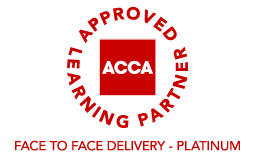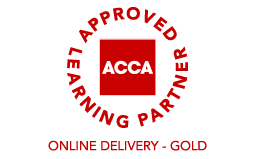Acing Your Accounting Course: How to Get the Most From Your Classes
Study, study, study. You know the drill.
If you want to ace your accounting course or any other course or program, nothing beats the good old technique of studying. So, open your textbooks and read, solve sample problems, and follow along with all exercises. That is how you learn, and learning your lessons is how you get the most out of your accounting course.
We have other tips aside from that, of course.
Preview: Enroll in a Certified Internal Auditors (CIA) program at a CIA training Dubai institute like Phoenix Financial Training and get a head start on the competition while you’re still in school.
Read on below for practical tips on how to get the most out of your accounting course.
1.Deepen Your Knowledge of Accounting Topics
As an accounting major, you will study financial, managerial, cost, and tax accounting. You will also learn auditing, business law, economics, macroeconomics, microeconomics, mathematics, statistics, business ethics, and management, among other subjects.
One of the ways you can make the most out of your years studying accounting in college is to delve deep into each subject area your program covers.
Think of it as making sure you’re not learning only the basics or just the concepts so you can pass your exams and move on to the next year level. While in college, study every subject like you’re writing a thesis on it.
Are you taking up intermediate financial accounting this semester?
Make sure to learn the subject inside-out. Go beyond the assigned readings. Read advanced textbooks on the topic, watch financial accounting video lessons, and pick your financial accounting professor’s brains on related problems.
Doing this will ensure you will come away from your accounting courses with more than just superficial, conceptual knowledge that you can’t apply in real-world scenarios.
Your goal: Gain superior subject matter expertise.
2. Broaden Your Scope of Knowledge
You shouldn’t only focus on deepening your knowledge of the topics covered by your course syllabus. Instead, go beyond your course’s prescribed subjects.
One strategy is to find topics that are technically not taught accounting students but remain relevant to accounting. Business administration should readily come to mind.
Another method is to study subjects in the domain you want to join after graduation. If you don’t have any clue about the specialization you would like to pursue, the industry you wish to be part of, and the type of role that’s right for you, visit online job boards and assess relevant job vacancies. Note the positions available and the industries that employ accountants.
Suppose you want to work as an internal auditor at a financial technology company. In this case, you can enroll in data analytics, cloud technology, data engineering, machine learning, and artificial intelligence electives. Of course, you should also deepen your knowledge in internal audit (see the first tip).
Indeed, while still in college, you should widen the scope of your knowledge and learn relevant subjects (e.g., business management, entrepreneurship, business innovation). Alternatively, you can start gaining domain knowledge in the industry you wish to join in the future.
Your goal: Graduate with knowledge that goes beyond standard accounting education.
3.Apply for Relevant Qualifications
While in college, you should start working towards one or more professional qualifications.
If, knowing the advantages of being an internal auditor at a company, you want to use your accounting degree as a stepping stone towards a career as an internal auditor, you can register for a CIA program to become a certified internal auditor.
The good news is that CIA programs are open to students in their final year in college. The better news is that full-time students get a significant discount on CIA application and exam fees.
Just note, however, that you must complete and pass all three CIA exams within three years of your application or registration. Furthermore, you can get your CIA certification only after you have completed your degree and satisfied other program requirements.
By beginning your CIA journey while you’re in college, you can take the exams when studying remains your greatest strength; you’re a student, after all. This should also give you a clear direction after college.
Before you can exit the CIA program, you need two years of experience in internal audit, external audit, internal control, quality assurance, risk management, or audit and assessment disciplines. This knowledge will inform your decision about which jobs you should apply for after college.
Aside from the CIA, you can also earn the Association of Chartered Certified Accountants or ACCA designation. Typically, matriculation to university for a bachelor’s degree is sufficient for ACCA registration. Additionally, since you’re taking up accountancy, you may be able to claim certain exemptions.
our goal: Fast track your way towards professional qualifications.
Become a Successful Accounting Student
To maximize your time in college as an accounting student, you should:
- Learn as much as you can about your accounting subjects.
- Acquire knowledge of relevant subject matter or domain knowledge in the industry you wish to join after college.
- Register for professional designation programs like the CIA and ACCA.
Phoenix Financial Training is a CIA and ACCA training Dubai-based provider.
We can help and guide you in your journey towards your CIA and ACCA qualifications, so please contact us if you want to jump start your accounting education.



